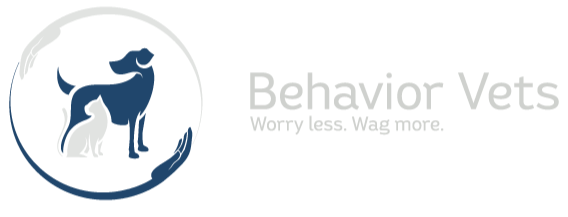Fear Memory Generalization: When the Protective Mechanism Goes Wrong
Fear memories are so important that they become generalized easily, ensuring that the individual can survive and adapt to complex and ever-changing environments. When confronted with a potential threat, an individual must respond appropriately and quickly for the best chance at survival. This can only be successful if prior fear memories have been generalized, so that the animal can utilize its experience to minimize the chances of harm, without having encountered this exact threat in this exact situation before.
Write your awesome label here.
Meet the instructor
Kathy Murphy BVetMed, DPhil, CVA, CLAS, MRCVS
Kathy Murphy (BVetMed, DPhil, CVA, CLAS, MRCVS) is a veterinary surgeon and neuroscientist. She recently joined the Behavior Vets team as the Chief Scientific Officer.
She graduated from the Royal College of Veterinary Surgeons UK in 1999, initially working in mixed clinical practice before studying for two postgraduate clinical qualifications. In 2009 she was awarded a highly prestigious Welcome Research Training Fellowship to study for her Ph.D., in Behavioral Neuroscience, at The Queens College, University of Oxford, UK. She subsequently worked in the USA as Assistant Professor of Neuroscience and Anesthesiology at the Icahn School of Medicine NYC; and is now back in the UK, where she holds a clinical-academic position as Director of the Comparative Biology Centre at Newcastle University and Director of Barking Brains Ltd (a neuroscience outreach program for the animal behavior and training community).
Dr. Murphy's clinical interest has always been anesthesia, and analgesia, since the age of 13yo and she has recently completed a residency at the European College of Veterinary Anesthesia and Analgesia. In addition to her primary career roles she was Trustee and Veterinary Advisor to the Rottweiler Welfare Association for 14 years, is a founder of Ethics First (a collective that lobbies for ethical decision-making in clinical practice), is an Oversight Committee Member for the UK Dog Behavior and Training Charter, sits on numerous National and International boards, working groups and ethical review panels, and most of all love spending time with her own 5 dogs and her husband.
Patrick Jones - Course author
Meet the instructor
Bobbie Bhambree CDBC, CPDT-KA
Bobbie Bhambree (CDBC, CPDT-KA) is the Director of Behavior Services and a Certified Dog Behavior Consultant at Behavior Vets. She is also a faculty member of CATCH Canine Trainers Academy and Agility University. Bobbie started her career in 2003 as a pet behavior counselor with the ASPCA Animal Behavior Center. While there, she implemented behavior modification programs for dogs who had been surrendered by the public or seized by Humane Law Enforcement. In 2007, Bobbie joined the Humane Society of Westchester, spending the next nine years as their shelter trainer. She created and implemented training and enrichment programs for the dogs, counseled adopters, trained volunteers, participated in community outreach programs, and performed evaluations.
In 2016, Bobbie joined the North Shore Animal League America in Port Washington, NY as the Director of Pet Behavior. During her tenure there, she managed a team of canine and feline trainers who focused on developing behavior modification and enrichment programs for the animals in the shelter. She also deployed for the ASPCA Anti-Cruelty Behavior Team to work in the field, supporting the team with dog fighting busts, puppy mill cases, and hoarding cases. In addition to this work, she founded and directed her own company, DogCentric Dog Training, helping people whose pet dogs experienced a wide spectrum of canine behavior issues. Bobbie presented at the Lemonade Conference, hosted by IAABC and Fenzi Dog Sports Academy, in February of 2022.
Over the years, Bobbie has very successfully competed in agility in various venues with several of her dogs including, Marvel who came in third for Performance Speed Jumping and Performance Grand Prix at Mid-Atlantic Regionals in 2019. Bobbie periodically contributes to the agility-focused magazine, Clean Run. She is passionate about working with dog sports teams struggling with behavior issues. Bobbie regularly teaches behavior workshops for the dog sports community.
Bobbie currently shares her life with four terriers, one Pitbull, and a border collie/whippet mix (Tricky, Ziggy, Marvel, Heady Topper, Eleanor Rigby, and Phuncky) and a very supportive husband in southern New Jersey.
Patrick Jones - Course author


